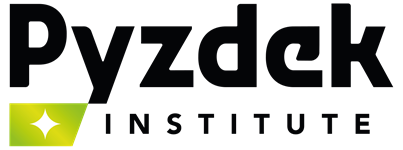Lean Six Sigma training has helped countless professionals advance their careers by equipping them with a powerful toolkit to improve business processes and efficiency. One prime example of this is Johan Bank, whose Six Sigma expertise played a key role in his career progression at Air France Industries.
Career Advancement Through Lean Six Sigma
Johan Bank, once a flight engineer, transitioned into the engineering and maintenance division of Air France Industries’ KLM Engine Services after receiving Lean Six Sigma training. His experience with Lean Six Sigma Black Belt methodologies allowed him to oversee critical projects, such as reducing the CFM56 engine overhaul time from 85 to 60 days.
Bank’s demonstrated success in applying Lean Six Sigma principles helped him climb the ranks to Director of MRO (Maintenance, Repair & Overhaul), eventually leading to his promotion to Vice President of Engineering. Bank credits his success to his engineering background and the Six Sigma skills he developed over his 30-year career.
Why Lean Six Sigma Matters
Lean Six Sigma training is more than just a credential—it’s a way to improve operations, save money, and boost profitability. In today’s competitive business environment, companies across all industries are striving to streamline processes and cut waste. Whether you work in aviation, manufacturing, healthcare, or finance, the skills gained through Lean Six Sigma certification are invaluable for driving process improvements and enhancing operational efficiency.
For professionals, having Lean Six Sigma certification on your resume sets you apart by showing you can tackle complex problems with data-driven solutions. Companies increasingly recognize this ability as essential, especially in leadership roles.
Lean Six Sigma in Multiple Industries
While Johan Bank’s example focuses on aviation, Lean Six Sigma is widely applicable across industries. In healthcare, Six Sigma-trained professionals are improving patient care by reducing waiting times and streamlining treatment processes. In manufacturing, Six Sigma helps reduce defects and improve product quality. Even financial institutions are using Six Sigma to improve customer service and reduce transaction times.
Levels of Certification and Career Impact
Lean Six Sigma certification comes in different levels:
- Green Belt: Ideal for professionals looking to lead small projects and contribute to larger efforts.
- Black Belt: Provides the skills to lead major projects and mentor Green Belts.
- Master Black Belt: Prepares individuals to oversee company-wide process improvement initiatives and train others in Six Sigma methodologies.
Each level brings greater expertise and career opportunities, with Black Belts and Master Black Belts often moving into leadership and executive roles, as Johan Bank’s story illustrates.
Real-World Impact
Johan Bank’s story is just one of many examples of how Six Sigma training can lead to significant career advancement. Across industries, professionals are using Lean Six Sigma to improve operational efficiency, cut costs, and, in turn, boost their earning potential.
Whether you’re aspiring to climb the corporate ladder or looking to make your organization more competitive, Lean Six Sigma training is a proven pathway to success.

Leave a Reply